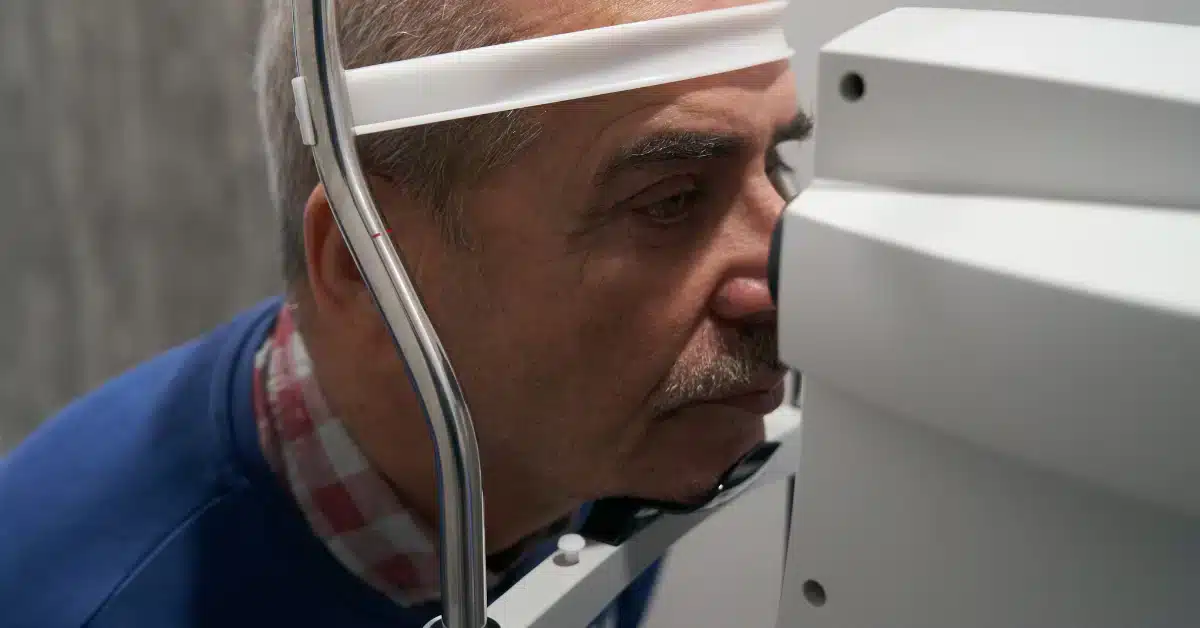A Comprehensive Guide to Sunflower Cataracts
Sunflower cataracts (SC) are an uncommon type of cataracts.
They are distinguished by golden or yellow-brown deposits in the eye’s lens.
These deposits can produce a distinct sunflower-like appearance, hence the name.
Sunflower cataracts are mostly found in Wilson’s disease, a rare genetic disorder.
Wilson’s disease can cause excess copper accumulation in the body.
SC can, however, be caused by other factors such as long-term corticosteroid use, eye trauma, and galactosemia.
In this article, we will explore the causes, symptoms, and treatments for sunflower cataracts.
Symptoms of Sunflower Cataract
The symptoms of sunflower cataracts can vary depending on the severity of the condition.
Some people may not experience symptoms, while others may have significant vision impairment.
Here are a few symptoms of SC:
- Blurred or cloudy vision: Copper buildup in the eye lens can cause it to become opaque or cloudy, resulting in blurred or impaired vision
- Difficulty seeing in low light: As the cataract worsens, seeing in dimly lit environments may become more difficult
- Light sensitivity: Some people with sunflower cataracts may have increased light sensitivity, which can cause discomfort or glare
- Halos around lights: Clouding of the eye lens can scatter light, causing halos or glare around bright lights
- Changes in color vision: Sunflower cataracts can cause colors to appear faded or washed out
- Kayser-Fleischer (KF) rings: These rings are a common symptom of sunflower cataracts and a distinguishing feature of Wilson’s disease. They are caused by copper buildup in the Descemet membrane, which is the cornea’s thin, innermost layer
Causes
Here are a few sunflower cataract causes:

Wilson’s disease
As previously stated, Wilson’s disease is the leading cause of sunflower cataracts.
This genetic disorder causes copper to build up in various tissues throughout the body, including the eye’s lens.
Copper deposits can alter the structure of the lens, resulting in cataract formation.
Corticosteroids
Long-term use of corticosteroids is another factor that may lead to SC.
Corticosteroids are frequently used to treat inflammatory diseases like Arthritis and Asthma.
Trauma
Sunflower cataracts can also be caused by eye trauma.
In these cases, the trauma damages the lens, causing changes that can lead to cataract formation.
Chalcosis
Chalcosis bulbi is a mild eye inflammation caused by an intraocular foreign body containing 70 to 85 percent copper.
It can lead to sunflower cataracts, Kayser- Fleischer ring, and green discoloration of the iris.
Treatments
The treatment for sunflower cataracts will depend on the condition’s underlying cause.
The following are some treatments for sunflower cataracts:

Chelation therapy
It is a treatment that uses medications to bind to and remove excess copper from the body.
Chelation therapy can help prevent further damage to the eye lens and, in some cases, even improve vision.
Surgery
Surgical removal of the affected lens may sometimes be required to restore vision.
It is usually done if the cataract significantly impairs vision and other treatments fail.
Also read: You can learn more about the process of surgery in our article Cataract Surgery: All You Need to Know About.
Vision aids
If your vision is severely impaired, you may benefit from using visual aids such as glasses, contact lenses, or magnifying lenses.
Conclusion
Sunflower Cataracts are a rare form of cataracts.
This eye condition can cause a copper buildup around the eye’s lens.
The primary cause of SC is Wilson’s disease. It can also result from eye trauma and long-term use of corticosteroids.
Sunflower cataracts can have symptoms such as KF rings and abnormal vision.
Contact your doctor, as timely treatment is necessary for healthy eyes.
Frequently Asked Questions
What is a sunflower cataract?
Sunflower cataracts are a rare type of cataracts. It can cause abnormal vision and rings around the eye lens. It is caused by Wilson’s disease, a genetic disorder. SC can also result from eye trauma and long-term use of corticosteroids.
What is sunflower cataract caused by?
Sunflower Cataract is caused by Wilson’s disease, a genetic disorder. It can also be due to eye trauma and the long-term use of corticosteroids.
What is the sunflower effect in the eyes?
Copper deficiency in the eyes can result in sunflower cataracts, manifesting as a physical presence of sunflower. It is necessary to contact a doctor immediately. They will proceed with a proper diagnosis, examination, and treatment of the condition.
WowRx uses only high-quality sources while writing our articles. Please read our content information policy to know more about how we keep our content reliable and trustworthy.






